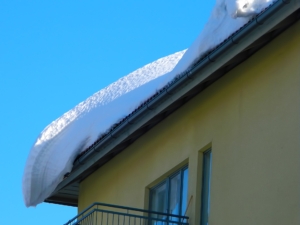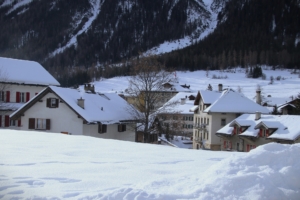The Effect of Snow and New England Weather on Your House’s Foundation – Do You Have Winter Damage?
Snow might be a lovely sight to see in the winter, but it can also do serious damage to a house’s foundation in Rhode Island. This blog article reviews the effects snow has on the foundation of homes and offers advice on how to minimize snow-related damage.
It’s critical for homeowners to understand the possible harm that snow may do to the foundation of their property. Ignoring snow’s impact on a foundation might result in expensive repairs or even jeopardize the house’s structural stability. Homeowners may prevent harm and safeguard their investment by being proactive and informed of the possibilities.
How Snow Affects Your House’s Foundation in Rhode Island
Understanding how snow might impact the foundation of your home can help you take precautions to limit any possible harm. Early intervention can help you avoid more expensive repairs later on.
Snow Accumulation On The Roof
When snow accumulates on the roof, it can become quite heavy, and the weight can put stress on the house’s foundation walls. If the weight becomes too much, it can cause foundation cracks or even collapse.
Frozen Ground and Soil Expansion
Frozen soil can expand and push against the house’s foundation walls, causing them to shift and crack. This is particularly common in areas with clay soil.
Snowmelt and Water Damage
When snow melts, the water can seep into the house’s foundation and cause damage. This is especially true if the foundation has cracks or is not properly sealed.
Ice Dam Formation
When snow accumulates on the roof and then melts, the water can freeze again at the edge of the roof, causing an ice dam. Ice dams can cause water to back up under shingles and into the house, potentially causing water damage and foundation issues.
Increased Pressure On The House’s Foundation Walls
As snow accumulates around the foundation, it can put additional pressure on the foundation walls, causing them to crack or bow.
Freezing and Thawing Cycles
When the temperature fluctuates, snow and ice can freeze and thaw, expanding and contracting. These cycles can put additional stress on the foundation walls, causing them to crack or shift.
6 Signs of Winter Damage to Your Home’s Foundation
- Cracks in the foundation walls or floor – One of the most obvious signs of winter damage to a foundation in Rhode Island is cracks in the walls or floor. As we’ve discussed, freezing and thawing cycles, snowmelt, and soil expansion can all put pressure on your foundation, causing it to crack. If you notice any cracks in your foundation, it’s important to have them inspected by a professional as soon as possible.
- Uneven or sagging floors – Another sign of winter damage to your foundation is uneven or sagging floors. This can happen when the foundation settles or shifts due to the weight of snow and ice. If you notice that your floors are no longer level, it’s important to have a professional assess the situation.
- Gaps around windows and doors – Snow and ice can also cause gaps to form around windows and doors. This can happen as a result of shifting and settling of the foundation. If you notice any gaps, it’s important to address them promptly to prevent further damage.
- Separation between the chimney and house – If your chimney is pulling away from your house, it could be a sign of winter damage to your foundation. This can happen as a result of soil expansion or the weight of snow and ice on the chimney. If you notice any separation between your chimney and house, it’s important to have it inspected by a professional.
- Cracks in the drywall or plaster – Another sign of winter damage to your foundation is cracks in the drywall or plaster. This can happen as a result of settling or shifting of the foundation. If you notice any cracks in your walls or ceiling, it’s important to have them inspected by a professional.
- Sticking doors or windows – Finally, if your doors or windows are sticking or difficult to open, it could be a sign of winter damage to your foundation in Rhode Island. This can happen when the foundation settles or shifts, causing the doors and windows to become misaligned. If you notice any sticking doors or windows, it’s important to have a professional assess the situation.
Prevention and Maintenance
- Clearing snow from the roof
- Proper drainage and grading
- Insulating and ventilating the attic
- Waterproofing the foundation
- Regular house foundation inspections and maintenance
Hire a Foundation Specialist in Rhode Island
Winter can be tough on your home’s foundation, but taking preventive measures and performing regular maintenance can help minimize damage and ensure the longevity of your foundation. If you notice any signs of winter damage, such as cracks or leaks, contact Set In Stone immediately to prevent further damage. Stay safe and warm this winter season.






